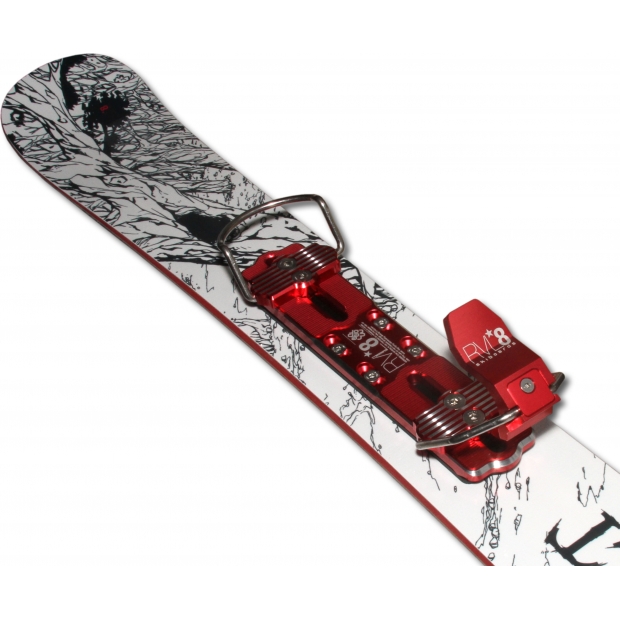Vázání Rvl8 Receptor Red
rvl8recred
Nové
The job of a non-release skiboard binding is to offer the tightest possible connection between your boots and skiboards.
Momentálně nedostupné
Parametry
| Inserty pro vázání | 4x4 |
| Délka podrážky boty | ? - 362 mm |
| Kontaktní délka | 285 mm |
| Posun vázání +/- (mm) | ± 10 mm |
| Výška vázání | 30 mm |
Více informací
The job of a non-release skiboard binding is to offer the tightest possible connection between your boots and skiboards. Not only is the Receptor binding one of the best at accomplishing this, it does it with beauty, style and at a very low weight - just over 1.5lbs per binding.
For 2016 the RVL8 Receptor bindings continue two improvements begun in 2013: 1) a more dense neoprene base pad 2) smaller adjustment teeth for finer boot adjustments. Color choices for 2016 are black, gold, blue, red, green, orange, purple and silver.
RVL8 Receptor non-release skiboard bindings work with all ski boots and hard shell snowboarding boots roughly from sizes 4-13. Please email us your boot's sole length if you have concerns or check the skiboard bindings specification table. Note: Leashes are not included.
Features:
- 1.8mm Microteeth for precise boot adjustments (reduced from 3mm for previous 2010,11 & 12 model years)
- More dense 5mm rubber interface with optional 10mm lift kit available (increased from previous 2010,11 & 12 model years)
- Made entirely of high quality aluminum and steel construction
- 6mm toe and heel bales fused under foot
- Multiple forward and aft mounting holes for negative and positive stance positions
- All screws are hex for reduced slippage and strippage
- Dual toe and heel bale adjustment screws
- Laser etched logos
- Anodized color variety (black, gold, blue, red, silver, green, orange, purple)
- 5 year warranty
RVL8 Receptor "Red" Skiboard Bindings
RVL8 2013 Receptor "Red" Bindings
WARNING: These bindings do not release in normal use. The use of non-release
bindings may increase the risk of lower leg injury, especially among children




